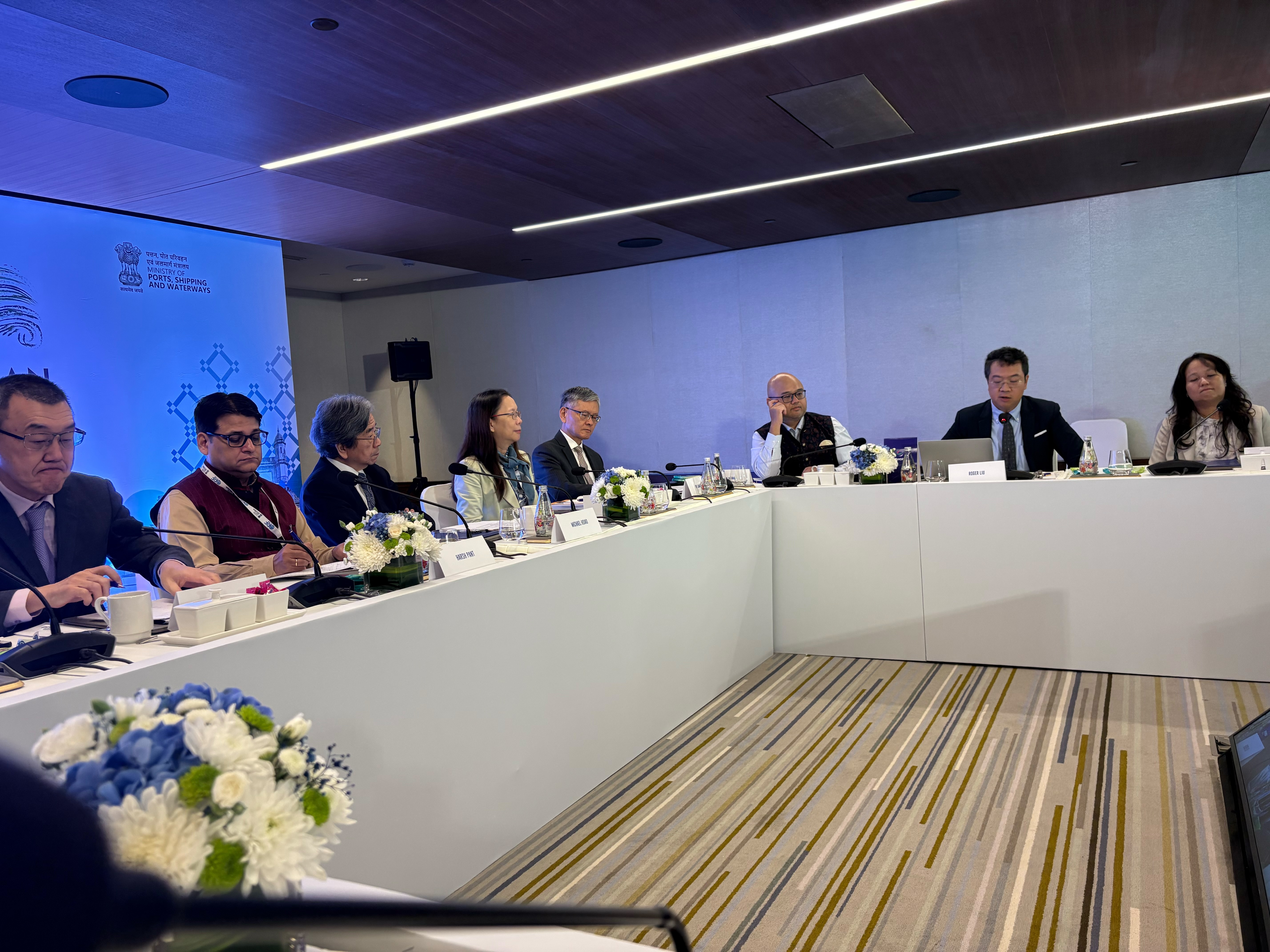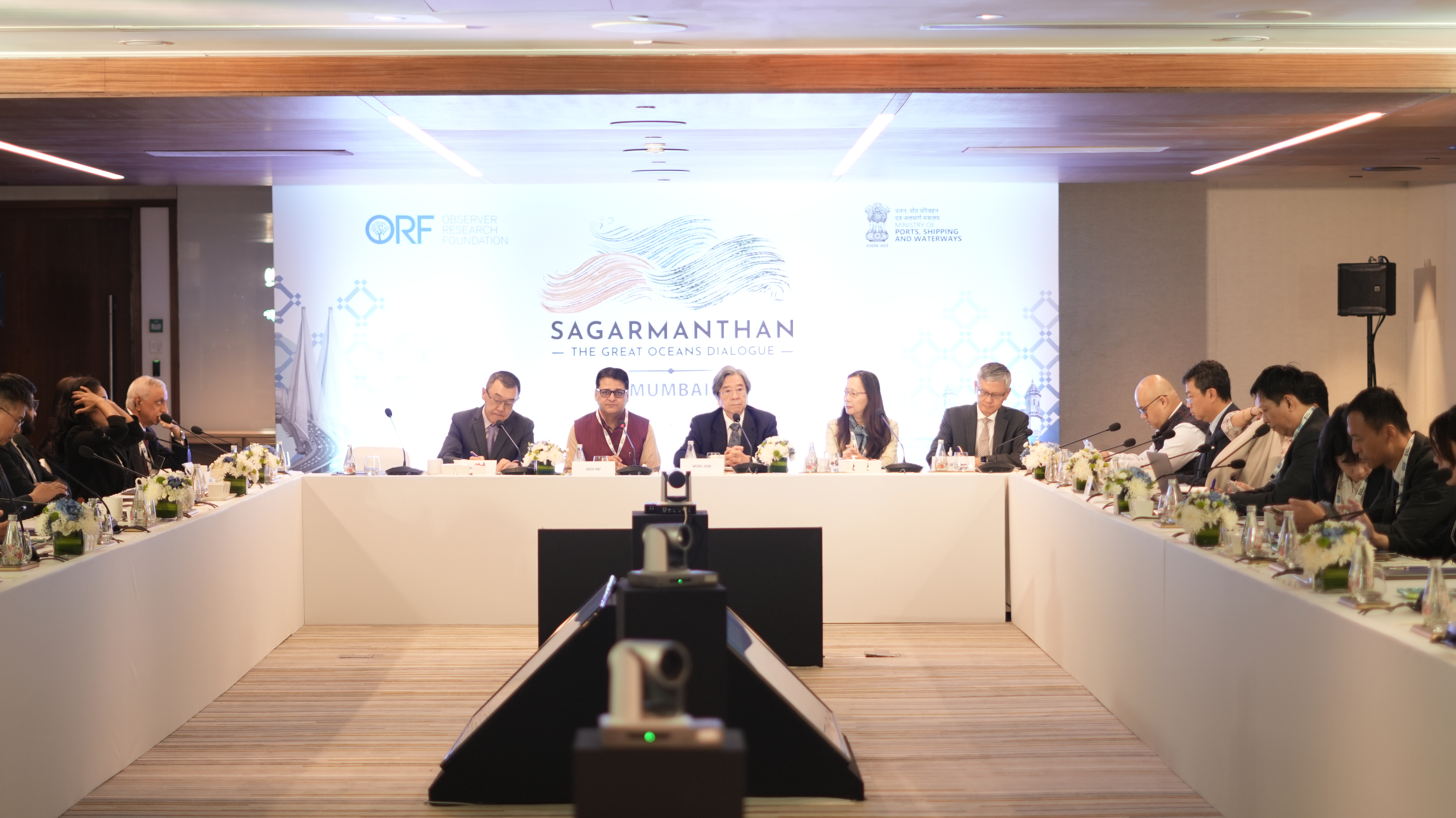
On Tuesday, October 28, 2025, the Observer Research Foundation (ORF) and the Taiwan-Asia Exchange Foundation (TAEF) co-hosted the Fourth Taiwan–India Dialogue at the Jio World Convention Centre in Mumbai, marking a key milestone in their partnership established in 2022.
Coinciding with the 30th anniversary of the India–Taipei Association and the Taipei Economic and Cultural Center in India, the Dialogue underscored both nations’ growing collaboration under Taiwan’s New Southbound Policy Plus (NSP+) and the Indo-Pacific framework. Bringing together leading experts and policymakers, the 2025 Dialogue focused on strengthening economic and technological cooperation, regional stability, and policy-oriented exchanges toward a resilient and forward-looking Indo-Pacific partnership.
The Opening Remarks featured Prof. Harsh Pant, Vice President of the Observer Research Foundation (ORF); Dr. Hsin-Huang Michael Hsiao, Chairman of the Taiwan-Asia Exchange Foundation (TAEF); and Ambassador Homer Chang, Representative of the Taipei Economic and Cultural Center, Mumbai Office. A Special Address was delivered by Hsiang-Wen (Julia) Huang), Deputy Minister of the Ocean Affairs Council.
Vice President Prof. Harsh Pant underscored India’s growing engagement with Taiwan as part of its broader Indo-Pacific outreach, highlighting that “India–Taiwan relations are no longer limited to a single focus—our cooperation now spans economic, technological, cultural, and strategic dimensions.” He emphasized that ORF’s collaboration with TAEF represents “a model of sustained, institutional dialogue between two vibrant democracies, producing tangible research outcomes and deepening mutual understanding.” Prof. Pant also welcomed the establishment of the Taipei Economic and Cultural Center in Mumbai, describing it as “a milestone that brings the partnership closer to India’s financial and cultural heart, and expands opportunities for regional and business linkages.” Reaffirming ORF’s commitment, he concluded that India views this partnership as part of its Indo-Pacific vision and will continue to advance policy-oriented collaboration and scholarly exchange to strengthen bilateral and regional resilience.
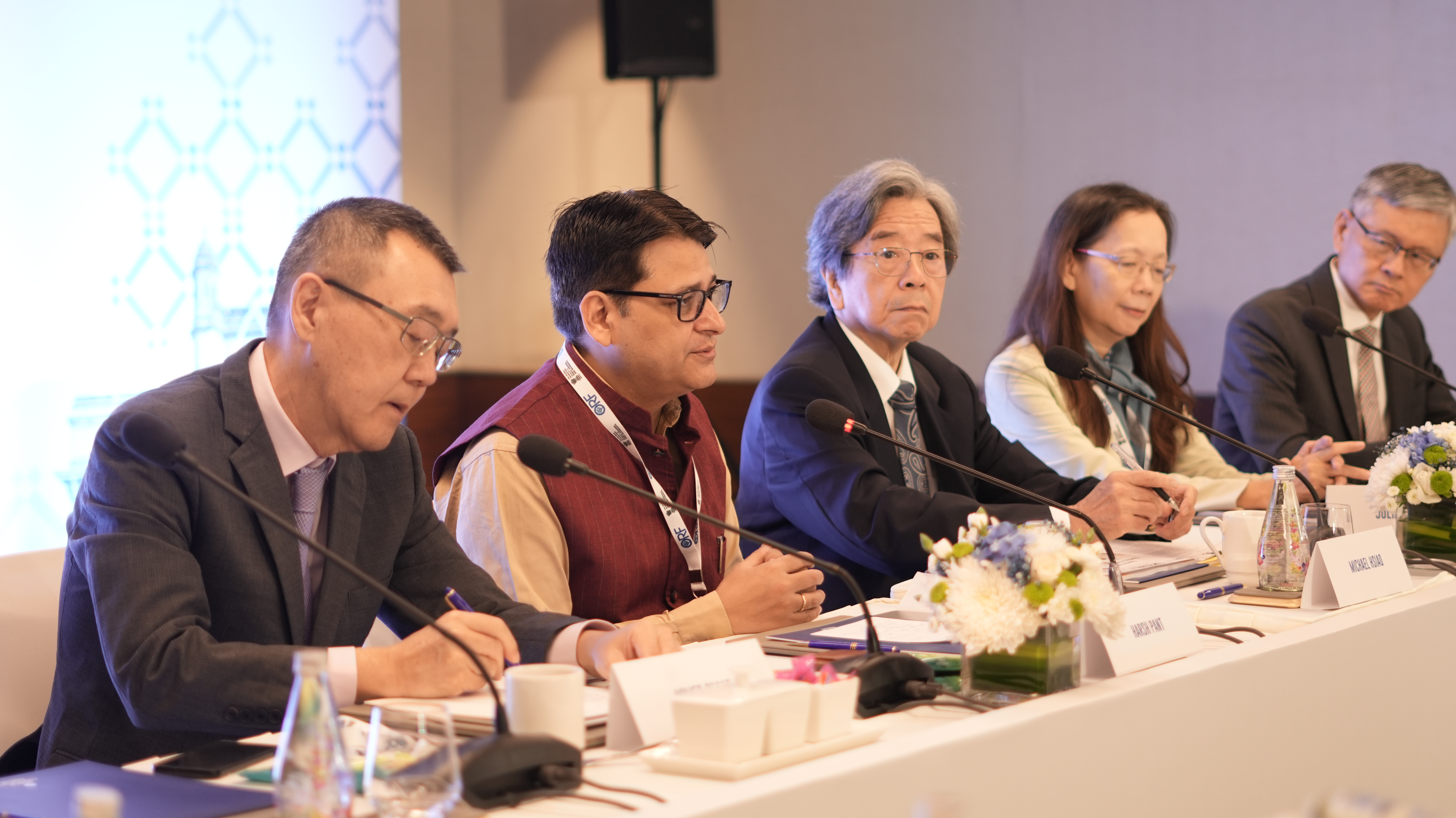
Dr. Hsin-Huang Michael Hsiao emphasized that India remains a priority partner under Taiwan’s New Southbound Policy Plus (NSP+), reflecting Taiwan’s long-term commitment to deepening engagement across the Indo-Pacific. Speaking in Mumbai, “India’s vibrant financial capital,” Dr. Hsiao highlighted that the bilateral partnership has expanded significantly over the past decade—marked by the 30th anniversary of the India–Taipei Association and the Taipei Economic and Cultural Center, and the opening of a third office in Mumbai, which he described as “a milestone for expanding our people-to-people and economic linkages beyond the capital.” He noted that TAEF’s New Southbound Policy Plus strategy places India at the center of Taiwan’s Indo-Pacific engagement, encompassing cooperation in semiconductors, renewable energy, education, and emerging technologies. Dr. Hsiao added that “our cooperation extends beyond bilateral gains—it strengthens supply chain resilience, supports democratic values, and contributes to a stable and prosperous Indo-Pacific order.”
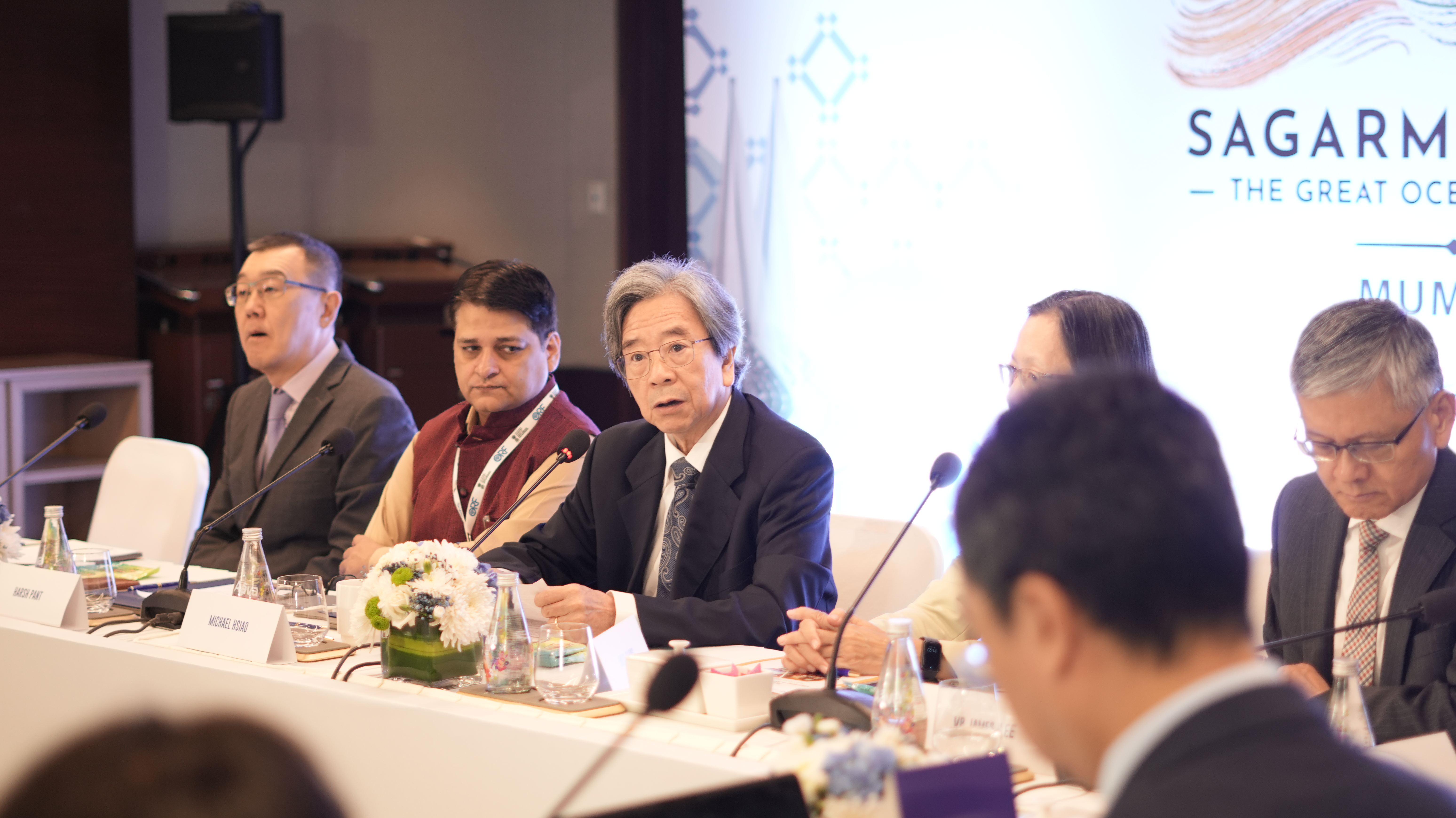
Ambassador Homer Chang commended the ORF and the TAEF for co-organizing the 2025 India–Taiwan Dialogue during the 30th anniversary of bilateral representative missions—the India–Taipei Association (ITA) and the TECC in New Delhi. He remarked that the occasion “reflects three decades of friendship, pragmatic cooperation, and shared democratic values under the guidance of Taiwan’s Ministry of Foreign Affairs (MOFA),” and highlighted Taiwan’s expanding presence through new offices in Chennai (2012) and Mumbai (2024). Emphasizing that “India and Taiwan are key stakeholders in the Indo-Pacific, sharing a vision for peace, prosperity, and stability,” he reaffirmed India’s importance in Taiwan’s New Southbound Policy Plus (NSP+) and Taiwan’s role as a reliable partner in technology and innovation. Drawing on the symbolism of Diwali and the Moon Festival, he described the Taiwan–India partnership as “light overcoming darkness—reflecting shared renewal, resilience, and optimism for the future.” He concluded by expressing confidence that continued collaboration under the NSP+ and Indo-Pacific Partnership will “deepen trust and friendship between our peoples—Jai Mumbai, Jai Maharashtra, Jai Taiwan!”
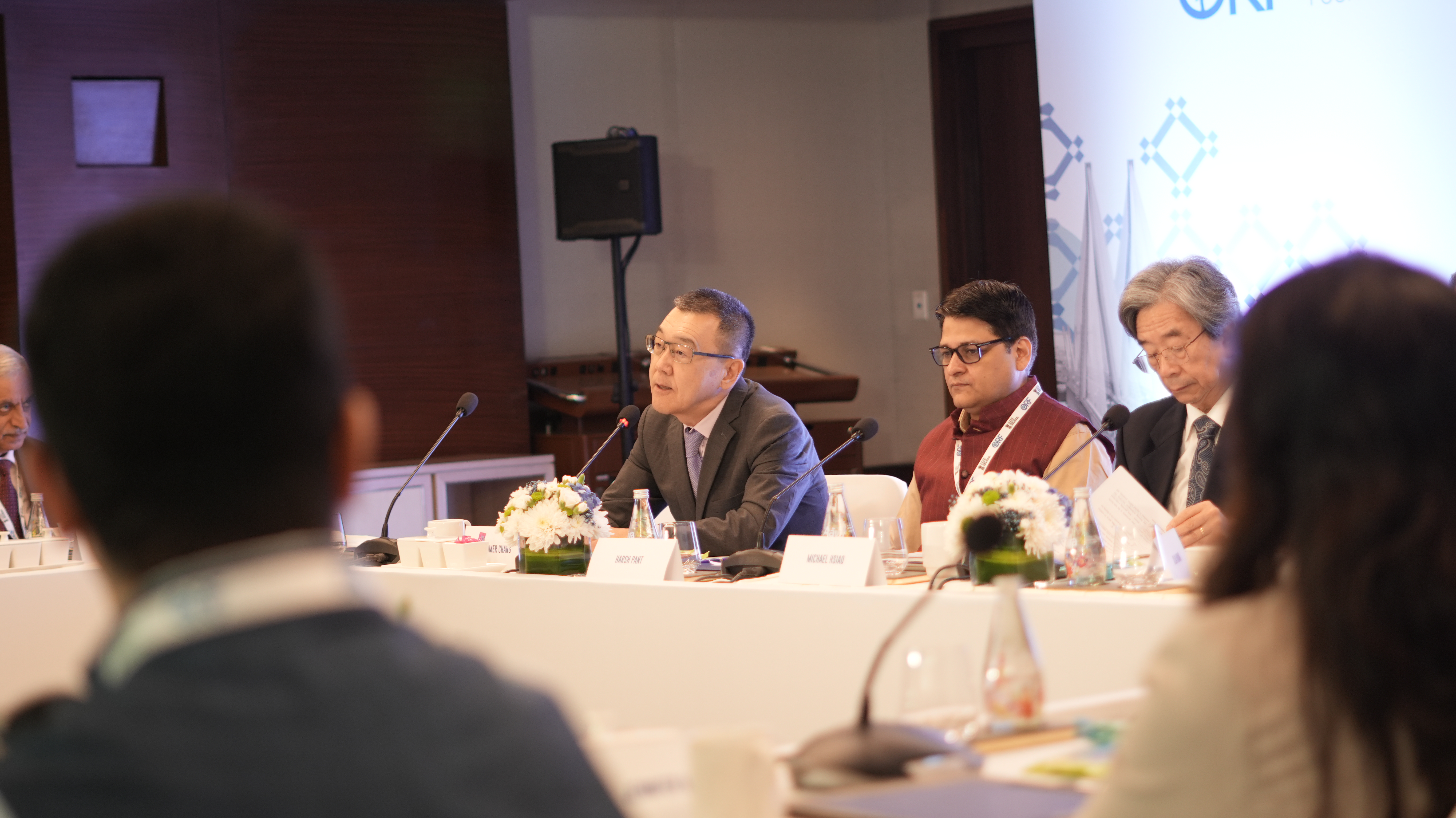
Deputy Minister Hsiang-Wen (Julia) Huang highlighted the Council’s commitment to advancing ocean governance and the blue economy as central elements of Taiwan–India cooperation. Marking the 30th anniversary of bilateral representative offices, she noted that both nations, as major maritime powers in the Indo-Pacific, share responsibilities in ensuring marine security, sustainable fisheries, and environmental protection. Dr. Huang emphasized that the OAC has strengthened maritime surveillance, ocean monitoring, and conservation technologies to address threats from illegal activities and safeguard regional stability. She encouraged deeper collaboration with India in marine science, renewable energy, circular economy initiatives, and maritime disaster resilience, stressing that “innovation and sustainability must move in tandem to build a resilient blue economy.” Concluding, she described the Dialogue as “a new starting point for closer maritime cooperation and joint stewardship of the Indo-Pacific.”
The Dialogue will feature two sessions highlighting key dimensions of India–Taiwan cooperation. Session One, to be moderated by Mr. Kalpit A. Mankikar, Fellow, Strategic Studies Programme, Observer Research Foundation (ORF), will focus on “Democracy, Economic and Technology Cooperation.” Speakers will include Ambassador James K.J. Lee, Vice President, Taiwan Foundation for Democracy; Board Member, TAEF, Ms. Jennifer Makhecha, Chairperson, Taiwan Chamber of Commerce Mumbai, Dr. Alan Hao Yang, Executive Director, Taiwan-Asia Exchange Foundation (TAEF), and Dr. Roger Liu, Assistant Professor, National Sun Yat-sen University. The discussion will explore how economic and technological collaboration in trade, investment, and semiconductors can serve as a cornerstone for strengthening democratic resilience and economic security.
Session Two, titled “India and Taiwan—Security and Beyond,” will be chaired by Prof. Hsin-Huang Michael Hsiao, Chairman, Taiwan-Asia Exchange Foundation (TAEF), and will feature Dr. Sana Hashmi, Fellow, Taiwan-Asia Exchange Foundation, Dr. Norah M. Huang, Director of International Relations and Research Fellow, The Prospect Foundation, Admiral Girish Luthra, Former Commander-in-Chief, Indian Navy Western Command, and Mr. Sayantan Haldar, Associate Fellow, Strategic Studies Programme, Observer Research Foundation (ORF). The panel will examine Indo-Pacific security challenges and discuss how India and Taiwan can strengthen cooperation in maritime security, cyber resilience, and supply chain stability to advance a free, open, and rules-based Indo-Pacific.
About the Taiwan–India Dialogue
The Taiwan–India Dialogue, now in its fourth year, is an alternating Track 1.5 policy forum jointly organized by the Taiwan-Asia Exchange Foundation (TAEF) and the Observer Research Foundation (ORF), held in Taiwan and India on a rotational basis. Rooted in Taiwan’s New Southbound Policy Plus (NSP+), the Dialogue serves as a key platform for advancing engagement with India—one of Taiwan’s most important Indo-Pacific partners—through sustained policy exchange and strategic collaboration. As a flagship initiative of TAEF’s NSP+ Think Tank Corridor, the Dialogue exemplifies the close institutional partnership between TAEF and ORF in promoting a free, open, and resilient Indo-Pacific and has been previously convened in New Delhi and Taipei, most recently at the Grand Mayfull Hotel, Taipei, in November 2024.
